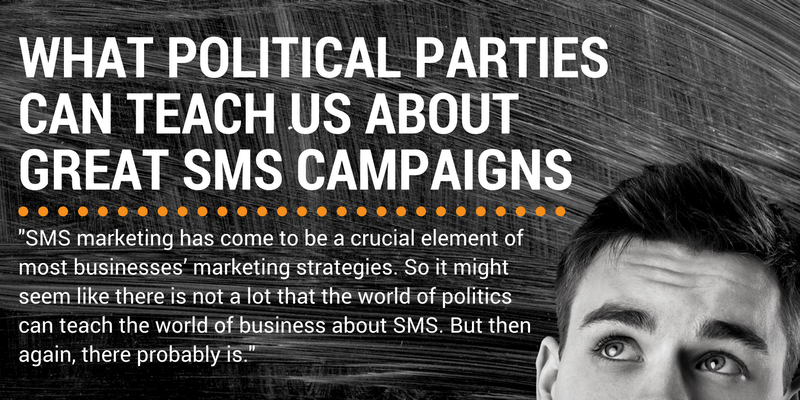SMS Messaging, Recruitment, and Millennials

Everyone wants a steady job with great pay and benefits right? Not so much for millennials. At least according to some research done in the last few years. It’s not that they want bad pay and poor benefits, just that those things aren’t necessarily the most important. But knowing what is important to them, just might make your SMS recruitment messages more successful.
Workplace or Play-Place?
The Telegraph reported on a study by Empirica Research that shows “workplace design and facilities” are the second most important reason people stay in their jobs. Another study done by Software Advice revealed “culture and atmosphere” was second – but a very close second – to “salary and benefits” as the most important thing applicants look for in a job.
The Empirica study also said that a quarter of people (employed of course) would take a pay cut for a better workplace. Of course some of these terms are subjective, but when you look at the research it seems millennials want work to be a place they want to go, rather than a grind they have to get through each day.
Recruitment companies need to know this stuff!
It’s a generational difference from older workers for sure. Many companies, larger ones especially, are doing what they can to attract these younger workers that want something different when they show up for work.
For example, Red Bull’s offices in Soho, London have a slide and a ping-pong meeting room. Mind Candy, the company behind Moshi Monsters, turned their offices into a play den with office toys and Guitar Hero.
As a recruitment agent, which SMS message do you think millennials would respond to best?
“James, are you interested in the programming job with Mind Candy? Reply YES for more info”
Or
“James, how would you like to get paid to play Guitar Hero and program new games from Mind Candy? Just reply YES for more info”
So there’s two things at work here. First, there’s taking advantage of something special the employers are offering. Second, you’re letting the potential candidate know that something special before they even apply. It helps get them interested, even if they’ve never heard of Mind Candy before. Or if it was for Red Bull, mentioning there’s a slide in the office will peak their interest and you might get more candidates that are qualified, but may not have responded if they didn’t know the brand.
Back to the examples, I think the second one would be more effective don’t you?
Ultimately, it's About More Than Money
Along with the most technological generation to enter the workforce, millennials are probably the most socially aware too. Many look for ways they can make a difference, while they make a pound. An article in the The Guardian quotes a recent graduate explaining her expectations of her career:
“It’s simple: work should allow us to generate an income, do what we love, and have a positive impact on the world.”
For someone like that looking for a job, which SMS recruitment message would work best?
“Andy, are you interested in a CSR rep position at XYZ company? Reply YES for more info”
Or
“Andy, can you help XYZ company become more socially responsible while making a top salary? Reply YES if interested.”
Writing these SMS messages may take a little more time than standard recruitment and job alert messages. Catering to candidates’ interests though, can help make you a more successful recruiter. And that will make employers, candidates, and you happier.
For more ideas on how SMS messaging helps recruitment companies read our guide here. It is full of tips and hints shared by our customers in the recruitment business.
Related Articles
Why Recruiters should be Embracing SMS Marketing
More and more recruiters and marketers are now realising the powerful impact SMS marketing can have. Fast, direct, discreet, and accessible to a candidate even when they might not be able to talk on the phone, they are still able to check their phone for text messages.
Are Recruiters “really, really bad” at Texting?
We work with many recruiters who use our SMS messaging to communicate with their candidates. In today’s world, text messaging is one of the best ways to ensure you can reach people with information, especially when it’s time critical. But are recruiters using SMS in the correct way?
SMS Messaging, Recruitment, and Millennials
Everyone wants a steady job with great pay and benefits right? Not so much for millennials. At least according to some research done in the last few years. It’s not that they want bad pay and poor benefits, just that those things aren’t necessarily the most important. But knowing what is important to them, just might make your SMS recruitment messages more successful.
What Political Parties Can Teach Us About Great SMS Campaigns
SMS marketing has come to be a crucial element of most businesses’ marketing strategies, and there is plenty of received wisdom within the marketing world as to how to get the most out of your SMS messages. So it might seem like there is not a lot that the world of politics can teach the world of business about SMS. But then again, there probably is.
SMS Marketing for Recruitment Agencies in 2018
21 Ready-to-Send Business Text Messaging Alerts
SMS marketing is a great addition to your business and overall marketing efforts. It can be daunting to get going, however, and the 160 character limit (or 456 characters if using fastsms) leaves a lot of people wondering exactly what they should say. To help you out, we've compiled 21 ready-to-send business text messaging alerts.
11 Benefits of Using SMS Messages in Your Network Marketing Strategy
Given that network marketing is very much dependent on communication, there are ways in which SMS marketing can be used to help increase recruitment, improve retention rates, create effective discussion, boost sales and motivate teams. Here's how...
SMS Messaging Can Make Employee Relations Easier, Faster, and More Efficient
Managing employee relations is possibly one of the hardest aspects of a corporation's day to day activities. There’s usually a ton of paperwork, regulations, checklists, and procedures to follow for each employee. This is especially true when new employees join a company. How can SMS help?
Can You Use SMS for “Cold Calling”?
Does the thought of cold calling fill you with dread? You might think it would be easier to use SMS messaging instead. And though it’s legal to do so in some circumstances, you might want to rethink using it that way. Read the full blog to find out why.
70% of Employees Want Their Employers to Use SMS Messaging
SMS messaging is a terrific way of keeping in touch with employees. Confirm work schedules, notify employees of payroll transfers, chase deadlines and more. What's really great is that the employees themselves really want employers to communicate the way.











